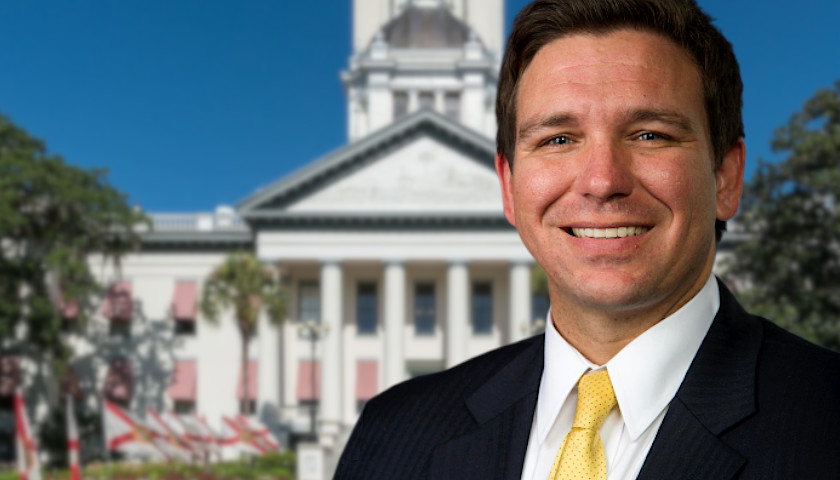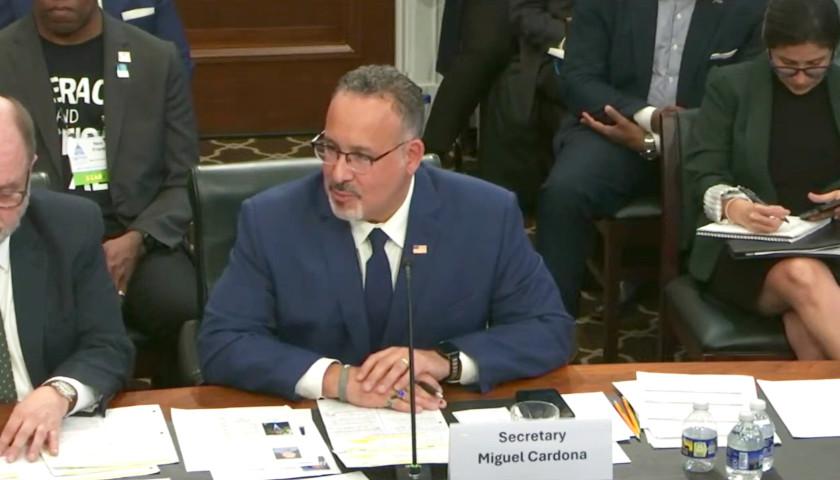Governor Ron DeSantis is in a standoff with Republican legislators over congressional redistricting plans which could be headed to the courts. The controversy comes after a successful legislative session which rewarded DeSantis with a number of victories he can use in his campaign for reelection.
Back in January, DeSantis submitted his own congressional redistricting plan. Governors have the authority to veto district map proposals but do not typically submit map proposals of their own.
At the time, DeSantis’ general counsel, Ryan Newman, issued a statement saying their office has “legal concerns” with the current maps under consideration at the legislature.
DeSantis proposed a more Republican-leaning plan that would eliminate two districts held by African American Democratic representatives. DeSantis believes that District 5, which stretches from Jacksonville to Tallahassee, is unconstitutional and should be consolidated to only include Jacksonville.
Florida State Representative Tom Leek (R-Ormond Beach) has previously noted there is a possibility that a legal challenge could void the maps if a court finds a change has “diminished” minority voters.
The Florida Supreme Court recently denied a request by Gov. Ron DeSantis for an advisory opinion about his proposal to alter District 5, which has been held by a black Democrat.
In addition, DeSantis’ plan would make it likely that Republicans would win 18 of Florida’s 28 congressional districts. A second map proposed by DeSantis favors Republicans in 20 of the state’s seats. Republicans currently hold 16 of the state’s 27 seats in Congress. Florida is adding a district this year because of population gains reported in the latest census.
In March, with the Florida House poised to vote on their own redistricting proposals, DeSantis tweeted, “I will veto the congressional reapportionment plan currently being debated by the House. DOA.”
Despite Governor DeSantis’s concerns, the House voted 67-47 to approve a plan that includes two maps – a “primary” map and a “backup” map. The backup map would be used if courts reject the primary version. The House plan was subsequently passed by the Senate, however the plans have not been formally sent to DeSantis.
At the close of the legislative session this past week, some lawmakers were uncertain about the process.
“It’s really hard to say where we are headed with redistricting,” said State Senator Ray Rodrigues (R-Estero), chair of the Senate Redistricting Committee.
However, DeSantis seemed less concerned.
“We will lay out a lot of the objections that we have, like we had previously, but I think we’ll do an even more thorough crafting,” DeSantis said of his anticipated veto message, as he appeared Monday in the Capitol’s 4th-floor rotunda to mark the end of the 2022 regular session.
DeSantis believes the way state lawmakers have interpreted the “Fair Districts” constitutional amendments, which voters passed in 2010 to prevent gerrymandering, doesn’t comply with the U.S. Constitution.
“My view is, you know, let’s do it in a way that is going to be consistent with both documents,” DeSantis said. “But, we’ll get there. We’ll make that work and we’ll figure it out.”
– – –
Steve Stewart is a senior contributor at The Florida Capital Star. Email tips to [email protected].








